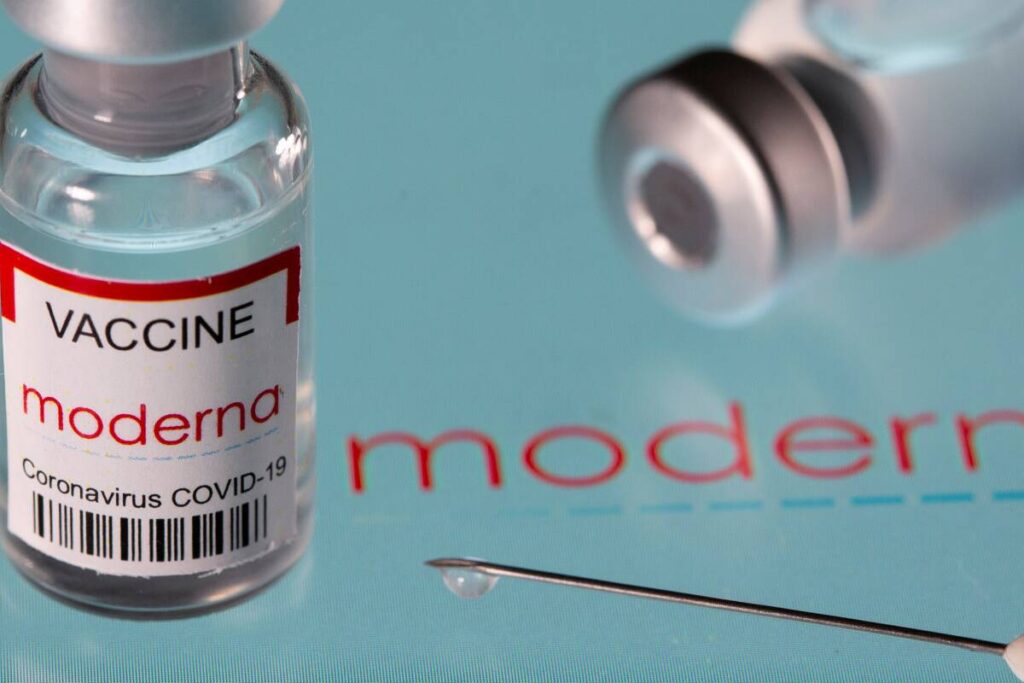
The import of Moderna’s mRNA technology-based coronavirus disease (Covid-19) vaccine into India was approved on Tuesday, paving the way for the country’s first international vaccine against the infectious disease.
Cipla Ltd, an Indian pharmaceutical company, applied on behalf of Moderna to the country’s drugs regulator, the Drugs Controller General of India, for approval to import the vaccine.
“An application received from Moderna through an Indian partner of theirs, namely Cipla, has been granted new drug permission for restricted use that is commonly known as emergency use authorisation. This is the first internationally developed vaccine for which now such permission exists today, and this potentially opens up a clear possibility of this vaccine being imported into India in the near future. Let’s see how this opportunity will be used for accessing the vaccine in the country. There must be other formalities that they will have to follow but a very important licensure has been given,” said Dr VK Paul, member (health), Niti Aayog, during the Union health ministry’s media briefing on Covid-19 updates.
Moderna is donating an unspecified number of doses to India through the World Health Organization (WHO) and Gavi’s COVAX mechanism, which Cipla is facilitating and approving. Cipla said in a statement that it is “assisting Moderna with regulatory approval and the importation of vaccines for donation to India.” There is no definitive agreement on commercial supplies at this time.” It was unclear how many doses would be imported or when they would arrive.
An official said the approval was not limited to donations. “Cipla has been given a licence to import, and it is applicable to the Moderna vaccine import in general, under which they are also allowed to distribute it here; since it is still under emergency use authorization retail sale of the product is not allowed. It does not matter whether the doses are a part of some donation or otherwise being exported by the US company, Cipla is now authorized to import the Moderna vaccine,” the official aware of the matter in the Central Drugs Standard Control Organisation (CDSCO) said on condition of anonymity.
“Even though it is totally up to them how much they want to import and when, it is likely that about 7 million doses are imported, and the process should start in next 5-6 days. Moderna has definitely got the first mover advantage…,” the official added.
In a statement, Moderna said the government of India issued a registration certificate and a permission to import the Covid-19 vaccine for restricted use in an emergency situation. “I want to thank the government of India for this authorization, which marks an important step forward in the global fight against the pandemic,” a statement by the company’s CEO said.
The vaccine, mRNA-1273, from Moderna TX, Inc., is a two-dose vaccine that must be administered 28 days apart. mRNA vaccines, or messenger RNA vaccines, are a relatively new vaccine technology platform.
The vaccine can be kept between -25 and -15 degrees Celsius for up to seven months, with a medium-term storage temperature of -20 degrees. An unopened vial can last 30 days in a normal cold chain where the temperature is between 2 and 8 degrees Celsius.
The mRNA vaccines instruct human cells on how to make a virus protein, or even just a portion of a virus protein, eliciting an immune response in humans. The benefit of mRNA vaccines, like all vaccines, is that they provide protection without exposing those who are vaccinated to the serious consequences of contracting Covid-19.
The Moderna vaccine was 94.1 percent effective in preventing laboratory-confirmed Covid-19 infection in people aged 18 and older, according to evidence from clinical trials.








